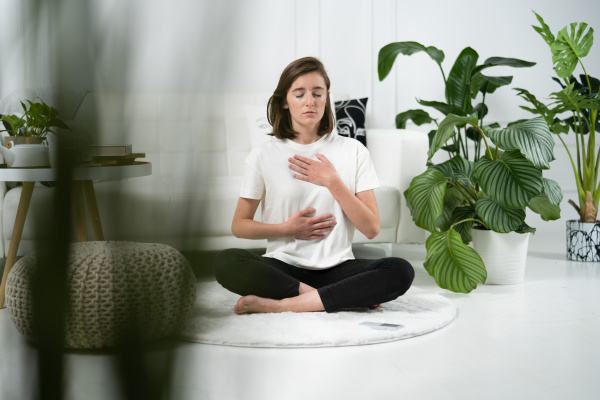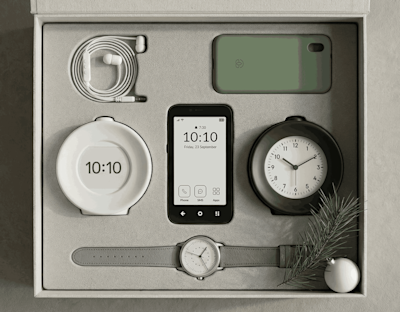
Discover How Deep Breathing Can Help You Become More Mindful
Breath is life
We breathe all day, however, we don't always think about it. In fact, many of us don't think about it at all until we’re out of breath or our chest becomes tight.
Our bodies naturally move through the breath cycle, which involves inhalation and exhalation—and this cycle can change depending on what we're doing or how we feel. For example, when you're stressed out or anxious, your breath gets shallower because your nervous system kicks into high gear (see more here). However, when you slow down and focus on breathing deeply with intentionality through each phase of the cycle (inhaling/exhaling), research shows that deep breathing exercises can help calm your nerves and tune out distractions so you can focus on one thing at a time instead of everything at once!
Deep breathing exercises for anxious and stress reduction have a significant effect on human health
What is Deep Breathing?
Deep breathing is a practice that has been used for thousands of years. When we breathe deeply, it can help slow down our heart rate, improve our focus and even reduce stress levels. Deep breathing can also have positive effects on our mental health and overall well-being. It's been shown to decrease anxiety symptoms and improve our mood by increasing the level of oxygen in the brain.
What exactly is mindfulness?
Mindfulness is a mental state of awareness and consciousness. It’s the practice of being aware of your thoughts, feelings and surroundings. Mindfulness allows you to observe your thoughts and emotions without judgment, so that you can understand them better. This practice also helps you focus on the present moment instead of dwelling on past events or worrying about future ones. With mindfulness, you'll be able to connect with your body, as well as feel connected with others around you while still being in control over what happens in life.
How breathing exercises can help you practice mindfulness
Since you can practice breathing exercises in any situation, by simply being aware and focusing on your breath as it enters and exits your body, you learn to be present with each inhale and exhale.
Deep breathing is the practice of breathing deeply and fully, in and out. When we breathe deeply and fully, we are able to focus on what's happening right now rather than worrying about what's coming up next or thinking about something that happened in the past. Deep breathing can also help us be less judgmental of ourselves or others.
Deep breathing exercises are an important part of mindfulness meditation—a type of meditation that teaches you to notice your thoughts without judging them, so they don't cause anxiety or stress. It can be difficult at first because there will be plenty of times when your mind wanders off from focusing on your breath! However, it’s important to keep practicing.
Mindful breathing can center you and help you stay in the moment.
Mindful breathing can help you practice staying present and in the here and now. It's a simple technique which brings you back to your body and helps you feel more grounded, centered and at ease. When we're stressed, our minds often race with thoughts of what we need to do next or how things could go wrong later. Mindful breathing slows us down by turning off these negative thoughts while also relaxing the body.
Mindful breathing exercises are easy to learn and can be used on their own or with other mindfulness practices like meditation or yoga. You can use deep breathing exercises as part of a meditation session or as an activity on its own if you just need some peace for a few minutes during your busy day.
Simple Breathing Exercises
If you're new to deep breathing, try the following exercise:
Find a comfortable place to sit or lie down. You can either sit cross-legged or lie on your back.
Close your eyes and take three deep breaths in through your nose, hold for a few seconds, then breathe out through your mouth.
Repeat this cycle 10-15 times until you feel more relaxed and calm.
There are other breathing exercises that you can practice on a daily basis. The first is the 4-7-8 technique, which involves breathing in through your nose for four seconds, holding for seven seconds, and then exhaling through your mouth for eight seconds. If you find this too complicated at first, try counting from 1 to 10 as you inhale and again from one to 10 as you exhale. Do this for 10-15 minutes each morning before getting out of bed and notice how much more relaxed and calm your body feels afterward!
Practice makes perfect
Mindful breathing is an easy way to center yourself and stay in the moment. Try incorporating it into your daily routine, whether that means taking a five-minute break during your lunch break or starting off each morning with a few deep breaths. The more you practice mindful breathing, the easier it will be to incorporate into your life as well as gain confidence in your ability to meditate effectively.
Our minimalist automatic watch, Mudita Moment features the mindful addition of 15 dots and the seconds hand which enable you to practice breathing exercises anytime and anywhere.
It’s the simplest and best tool for personal wellness because it’s always with you and acts not only as a guiding mechanism, but also a reminder to pause, slow down, and take a deep breath.
Mudita Moment & Mudita Pause
If you’d like to read more about topics connected to this subject, please check out some of our other articles posted on our blog:
You might also like to join our FORUM Community where we discuss ideas and exchange information about all things connected to wellness and overall health & well-being.
Related stories

Reclaiming the Year Ahead, One Intentional Choice at a Time
Reclaim your year through small, intentional choices. Learn how digital decluttering and mindful technology can restore focus, calm, and clarity.

Mudita Radiant, Now Available in Regular Sale
Mudita Radiant moves to regular sale with immediate availability. Experience a Swiss Made automatic field watch built for clarity, durability & everyday wear.

Introducing 8 Days of Mindful Gifting
Mudita presents 8 Days of Mindful Gifting. One new promotion each day, Dec 5–12 at 12:00 CET. Visit daily for meaningful, intentional gift ideas.
If you'd like to receive the best stories from our blog, keep up to date with our progress and get notified about our product releases and special discounts.